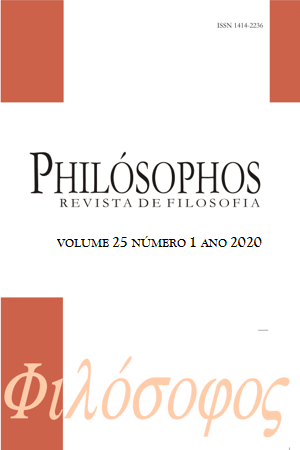The origins Of Wittgenstein’s Philosophical Remarks: On Ts 208 And Ts 209
DOI:
https://doi.org/10.5216/phi.v25i1.62274Resumo
According to Rush Rhees, Wittgenstein composed TS 209 (Philosophical Remarks) and handed it in to Russell in order to renew a grant from the Cambridge Council Cambridge in April-May 1930. Pichler (1994, 2009) and Rothhaupt (2010) challenged Rhees’ hypothesis, and claimed that Wittgenstein handed in TS 208 to Russell, and not TS 209. Against their view, I argue that Rhees’ hypothesis best explains the major motive for the composition of Philosophical Remarks, and that it best explains what Wittgenstein handed in to Russell. While I give six reasons in favor of Rhees, I also try to explain how Russell, Moore, Littlewood, Schlick, and Waismann are linked with the composition of TS 208 and TS 209.
Downloads
Downloads
Publicado
Como Citar
Edição
Seção
Licença
Autores que publicam nesta revista concordam com os seguintes termos:
- Autores mantêm os direitos autorais e concedem à revista o direito de primeira publicação, sendo o trabalho simultaneamente licenciado sob a Creative Commons Attribution License o que permite o compartilhamento do trabalho com reconhecimento da autoria do trabalho e publicação inicial nesta revista.
- Autores têm autorização para assumir contratos adicionais separadamente, para distribuição não-exclusiva da versão do trabalho publicada nesta revista (ex.: publicar em repositório institucional ou como capítulo de livro), com reconhecimento de autoria e publicação inicial nesta revista.















